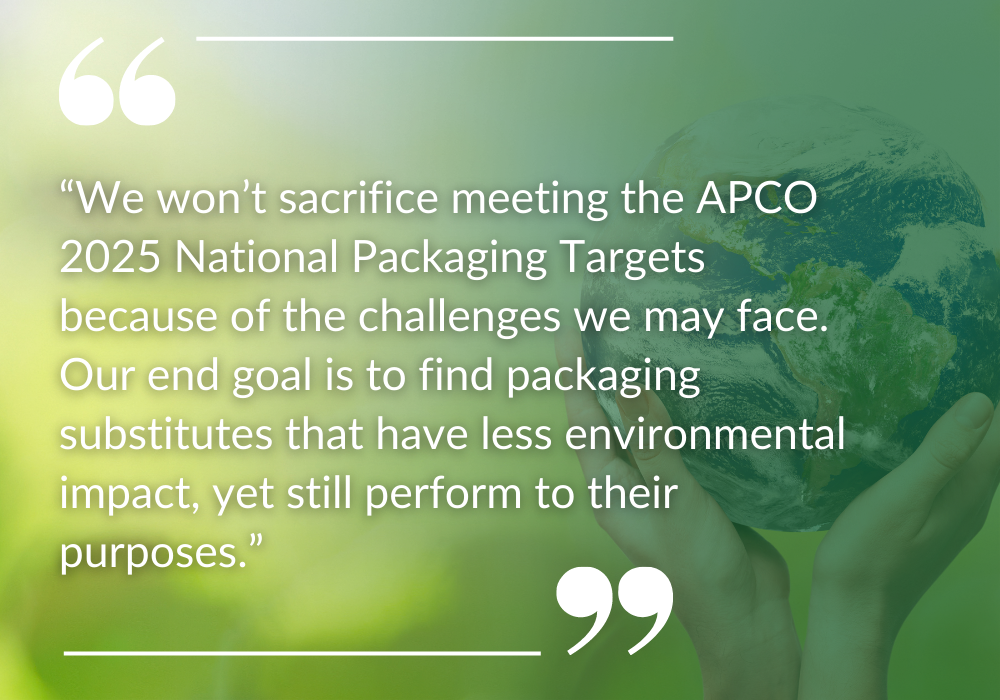Sancell understands the importance of protective packaging and the role it plays to reduce damage in transit while staying environmentally conscious.
We recently partnered with APCO to discuss sustainable packaging and our commitment to the environment through sustainable practices…
With an uncompromising focus on the environment and delivering quality in service and product, Sancell is an industry leader in plastics manufacturing and innovation. Sancell understands the importance of protective packaging and the role it plays to reduce damage in transit while staying environmentally conscious.
Sancell’s efforts to include more sustainable practices include:
1. Ensuring products arrive to customers as expected, making use of 100% recycled cores and returnable, recyclable cartons
2. Making packaging products with recycled material using in-house recycling machinery
3. Creating packaging with bags containing a minimum of 50% recycled materials
4. Transporting products using returnable pallets
Recycled Materials
As an organisation that manufactures using recycled material, Sancell’s biggest challenge is gaining access to quality recycled resin. External suppliers are unable to sustainably provide enough resin for more than 50-60% recycled material in Sancell’s outer bags.
“Ultimately, minimisation and elimination of our packaging without compromising the quality of our product is a priority to us,” says Sancell Director Doug Parkinson.

Driving Sustainable Packaging Forward
Sancell’s packaging sustainability strategy commits to using the Sustainable Packaging Guidelines which are integrated into their practices through their environmental and quality management systems.
“To overcome our existing challenges, we’ve implemented numerous internal processes to minimise, and where possible, eliminate single-use packaging from our products,” says Doug.
“Processes such as returnable pallets, returnable coreflute cartons, returnable pallet covers, optimised self-adhesive labels and we return cores to suppliers for reuse.”
Consumers on Board
Sustainable packaging is an important issue to Sancell’s customers, who understand that protecting the environment comes at a cost. The company uses multiple channels to keep customers and suppliers informed about sustainability and updates to packaging.
Doug says “the biggest advantage of manufacturing protective packaging is that our customers have the same quality and environmental expectations when it comes to our products,”.
Packaging experts at Sancell recommend businesses ensure their packaging solutions are authentic, fit-for-purpose, achieve real and measurable benefits for the environment, and avoid greenwashing.
In short, sustainable packaging is good for business and good for the environment.
Key recommendations for sustainable packaging:
1. Try to see past the initial commitment of time and the associated costs.
2. Encourage someone in your business or take it upon yourself to drive sustainable packaging initiatives.
3. Identify and work with suppliers that use materials that can be recycled to drive valuable end markets for packaging materials.
4. Work with your wider supply chain to understand the impact of your packaging across its whole lifecycle.
5. Review your packaging against the Sustainable Packaging Guidelines to implement the ten principles that drive sustainable packaging.
6. Leverage your engagement in packaging sustainability to strengthen your brand.
Read the full APCO Case Study on Sancell here.
Read Sancell’s 2023 ‘Beyond Best Practice’ APCO Report here.

